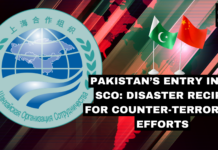Nine terrorists were killed in a clearance operation after a terrorist attack on the Mianwali Training Air Base of the Pakistan Air Force in the early hours of Saturday, the military’s media wing ISPR said.
The ISPR further said that no damage had been done to any of the PAF’s functional operational assets, while only some damage was done to three already phased-out non-operational aircraft during the attack.
However, as per insider reports, the Pakistan Airforce and ISPR are hiding information and the actual loss is 14 aircraft and 35 military men.
The development comes on the heels of a series of incidents that left at least 17 soldiers killed in Balochistan and Khyber Pakhtunkhwa.
Pakistan has witnessed an uptick in terror activities in recent months, especially in KP and Balochistan.
Last month, on October 31, a policeman was killed after unknown militants opened fire on a police camp in Dera Ismail Khan. That same day, two soldiers were killed in an IED blast in South Waziristan district.
In July, as many as 12 soldiers of the Pakistan Army killed in separate military operations in the Zhob and Sui areas of Balochistan.
That was the military’s highest single-day death toll from terrorist attacks reported this year. Before this, 10 personnel were killed in a ‘fire raid’ in Balochistan’s Kech district in February 2022.
Recent data compiled by the Pakistan Institute for Conflict and Security Studies (PICSS) said the number of militant attacks in August was the highest tally for monthly strikes in almost nine years.
The Tehreek-e-Jihad Pakistan (TJP), an affiliate of the Tehreek-e-Taliban Pakistan (TTP), claimed responsibility for the attack on the military airbase.
The latest attack is an indicator that the problem of terrorism had just been swept under the carpet. Because terror elements swung right back into action at the first opportunity, as per an editorial by Dr. Ayesha Siddiqa, a well-known Pakistani scholar on military affairs.
”A far bigger problem though is Pakistan’s approach of separating ‘good’ and ‘bad’ Taliban. This results in the continued penetration of these extremist-militants into both state institutions and society. During my discussion with several sources in Pakistan, I was reminded of the space that the Inter-Services Intelligence (ISI) had given to the TTP, especially under the leadership of Lt. General Faiz Hameed and then-Prime Minister Imran Khan. After 2018, the Khan government embarked upon an ambitious project of accommodating the angry Taliban under the disarmament, demobilisation and reintegration (DDR) formula. This was conceptualised by the ISI around 2014/16, when Lt General Rizwan Akhtar was its chief. Akhtar had proposed the ambitious, though controversial, plan of DDR instead of arresting, punishing or eliminating militants,” writes Siddiqa, in her recent editorial.
Since a decade and a half, the TTP and its various components have attacked both soft and hard targets in Pakistan, including the Army General Headquarters (GHQ) in 2009, the Mehran naval airbase in 2011, the Minhas air base in 2012, and the Badaber non-flying airbase in 2015.
Some in Pakistan also feel that the recent uptick in terrorism maybe linked to the upcoming general elections scheduled for February 2024.
In the past, terror groups with linkages to the Pakistani security establishment have been allegedly unleashed against leading Pakistani politicians to stop them from campaigning openly and hence controlling the outcome of the elections. Is this a repeat of the same?
As the date for the vote draws near, Pakistan may witness another bloodbath which raises serious questions about the willingness of the Pakistani military to fight terrorism, and as Siddiqa in her editorial points out: the military must divert attention back to security matters rather than managing the politics and the economy.
